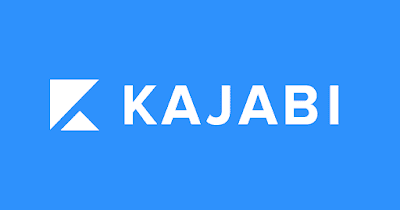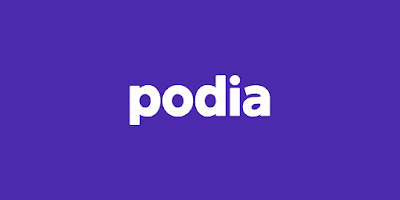Teachable's platform is user-friendly, jam-packed with eCommerce tools, and excellent for establishing your online presence. It is however constrained in some areas.
Best 5 Alternatives Of Teachable in 2022
1. Kajabi
Kajabi, one of the top Teachable alternatives, offers toolkits for creating course content as well as a digital marketing arsenal that is superior to many other platforms in this study. With features such as drip feeds for membership content and a countdown timer for course releases, Kajabi enables you to maximize your conversion and retention rates.
You also have the choice to replace the Kajabi branding with your own, unlike Teachable.
However, you will have to pay a premium for them.
You also have the choice to replace the Kajabi branding with your own, unlike Teachable.
However, you will have to pay a premium for them.

Link: https://kajabi.com/
Pros
- No transaction costs
- Analytics in real time
- Countless landing pages and promotional emails
- Mobile application
- Built-in powerful email and marketing automation features
Cons
- Branding for Kajabi using the Basic Plan
- Unless you upgrade to Kajabi's Growth Plan, there is no white labeling or affiliate program available.
- To access a code editor for modification, you must upgrade to Kajabi's Pro Plan.
Plans and Pricing
- Basic: $149 or $119 per month if billed annually (10,001 contacts, limitless marketing emails, landing page builder)
- Growth: $199 or $159 per month if billed annually ( 25,000 contacts, 10 user admins, and quizzes and polls)
- Pro: $399 or $319 per month if billed annually (25 admins, advanced automation, white labeling)
2. Mighty Networks
Mighty Network is a platform for networking and sharing that is focused on the community, as its name suggests. You may publish feature-rich courses, host occasions like video chats and webinars, and create a thriving student community with its online course hosting tool.
Study groups can be created by students, and teams can divide up courses into separate portions. With tools for broadcasting postings and updates across your network and access to training resources based on tiered memberships, managing your teams both individually and collectively is simple.

Link: https://www.mightynetworks.com/
Pros
- Features that create community, like a membership site
- Coupons, upselling, and cross-selling marketing methods.
- Affiliate marketing
- White-labeling
- Excellent analytics tools
Cons
- No integration with PayPal
- No student monitoring tools, such as tests and assignments
- Lack of drip-feeding content capability Absence of native connectors with GetResponse or MailerLite.
Plans and Pricing
- Free plan: $0 (Personalized feed, public/private tutoring choices, direct chatting)
- Business Plan: $98 or $81 per month if billed annually (native video online courses, more than 3000 Zapier integrations, premium analytics)
- Community Plan: $28 or $23 per month if billed annually (custom domain, countless moderators, membership fees)
3. Podia
Podia maintains a careful balance between excellent performance and simplicity of design. On a simple, user-friendly user interface, it stacks a vast array of capabilities for building online courses, selling digital products, and managing memberships.
Podia enables personalized branding with excellent white-label features, in contrast to the Teachable platform.
Additionally, it offers more potent email marketing capabilities including drip programs and email broadcasting. However, given the absence of capabilities like Teachable's Power Editor, you might have to give up a little bit of creative flexibility.
Additionally, it offers more potent email marketing capabilities including drip programs and email broadcasting. However, given the absence of capabilities like Teachable's Power Editor, you might have to give up a little bit of creative flexibility.

Link: https://www.podia.com/
Pros
- A clean, uncomplicated user interface
- No transaction costs
- Dedicated websites for the sale of memberships, courses, and digital downloads
- Drip programs are effective email marketing strategies.
- Instant Payout.
Cons
- There are no course compliance or completion certificates.
- There are less potent marketing options in the entry-level plan.
- Fewer choices for customization
- Primary text editor
- No integrated analytics.
Plans and Pricing
- Mover: $39 or $32.50 per month if billed annually (custom website, webinars, features for email marketing, affiliate marketing tools)
- Shaker: $79 per month or $65.20 per month if billed annually (messaging, daily live Q&A, free migrations, third-party codes)
- Earthquaker: $199 or $166 per month if billed annually (Priority support, onboarding calls, Monthly Creator Call)
4. Thinkific
Looking for a top Teachable substitute that offers subscriptions and online course creation? Thinkific is a good option.
Thinkific is a strong Teachable rival that offers a truly free plan, a top-notch drag-and-drop site builder, customization options, voice-over presentation features, and many other useful features.
Thinkific allows you to remove their branding from key areas like your login, sales pages, and URLs, giving your branding more breathing room.
Thinkific is a strong Teachable rival that offers a truly free plan, a top-notch drag-and-drop site builder, customization options, voice-over presentation features, and many other useful features.
Thinkific allows you to remove their branding from key areas like your login, sales pages, and URLs, giving your branding more breathing room.

Link: https://www.thinkific.com/
Pros
- A plan that is always free and packed with excellent tools for creating courses
- Adaptable pricing (one-time fees, monthly subscriptions, or additional course charges)
- No transaction costs
- Mobile responsive
- Quick payments
Cons
- No analytics tools for evaluating course performance; just email is accessible for customer support.
- Lack of integrated email automation tools
- Limited video content
- Lacks choices for customizing
Plans and Pricing
- Free: $0 (unlimited students, quizzes)
- Basic: $49 or $39 per month if billed annually (email integrations, drip scheduling, limitless students and courses)
- Pro: $99 or $79 per month if billed annually (Advanced pricing choices, bundles, subscriptions, and certificates)
- Premier: $399 or $499 per month if billed annually (Unlimited Growth Package, Group Analysis, Onboarding Package)
5. Udemy
The other Teachable alternative on this list that is Udemy is a bit different. Since Udemy is not an online course platform but rather an online course marketplace, it is free to use for the course production.
For course developers without an existing audience, Udemy is a fantastic choice. Additionally, using cutting-edge tools for creating online courses, such as the "Instructor Dashboard" and a vast library of tutorials, is completely free.
Your online course can be promoted using a variety of marketing strategies once it has been published on the Udemy marketplace. Successful courses can be repeated for free many times over.
But you'll have to split your profits with Udemy: up to 50% of purchases from Udemy's organic traffic, or 3% from sales through your marketing initiatives (such as coupon distributions).
For course developers without an existing audience, Udemy is a fantastic choice. Additionally, using cutting-edge tools for creating online courses, such as the "Instructor Dashboard" and a vast library of tutorials, is completely free.
Your online course can be promoted using a variety of marketing strategies once it has been published on the Udemy marketplace. Successful courses can be repeated for free many times over.
But you'll have to split your profits with Udemy: up to 50% of purchases from Udemy's organic traffic, or 3% from sales through your marketing initiatives (such as coupon distributions).

Link: https://www.udemy.com/
Pros
- No requirement for a devoted following
- Exam practice and quizzes
- Diplomas of completion
- A teachers' very supportive union
Cons
- To attract students to buy your courses directly from you rather than naturally through Udemy, you'll need to put more marketing effort into it.
- Udemy regularly holds site-wide deals to unload courses, which can significantly reduce course prices.
- Branding of Udemy (no white labeling)
- As a creator of courses, you will have fierce competition.
Plans and Pricing
- Free Plan: $0 with a transaction charge of 3 percent for courses sold through your marketing and 50 percent if your course is sold naturally through Udemy (unlimited courses)
- Business Team Plan: $360 annually per person (5-20 team members, unlimited access to 5,500 courses, white-label dashboards)
- Business Enterprise Plan: Get pricing information from Udemy (21+ team members, personalized learning pathways, and unique categories)
Conclusion
Finding a suitable Alternative may be challenging, but with the help of this guide, you may find a nice substitute for your profession in course creation. They all have prices that are comparable to Teachable and provide learning opportunities of a high caliber.
You can try out any virtual classroom with a free trial if you're having problems deciding which Teachable alternative is best for your course production objectives. Most of them provide a trial plan, you can try them out and decide for yourself.






No comments:
Post a Comment